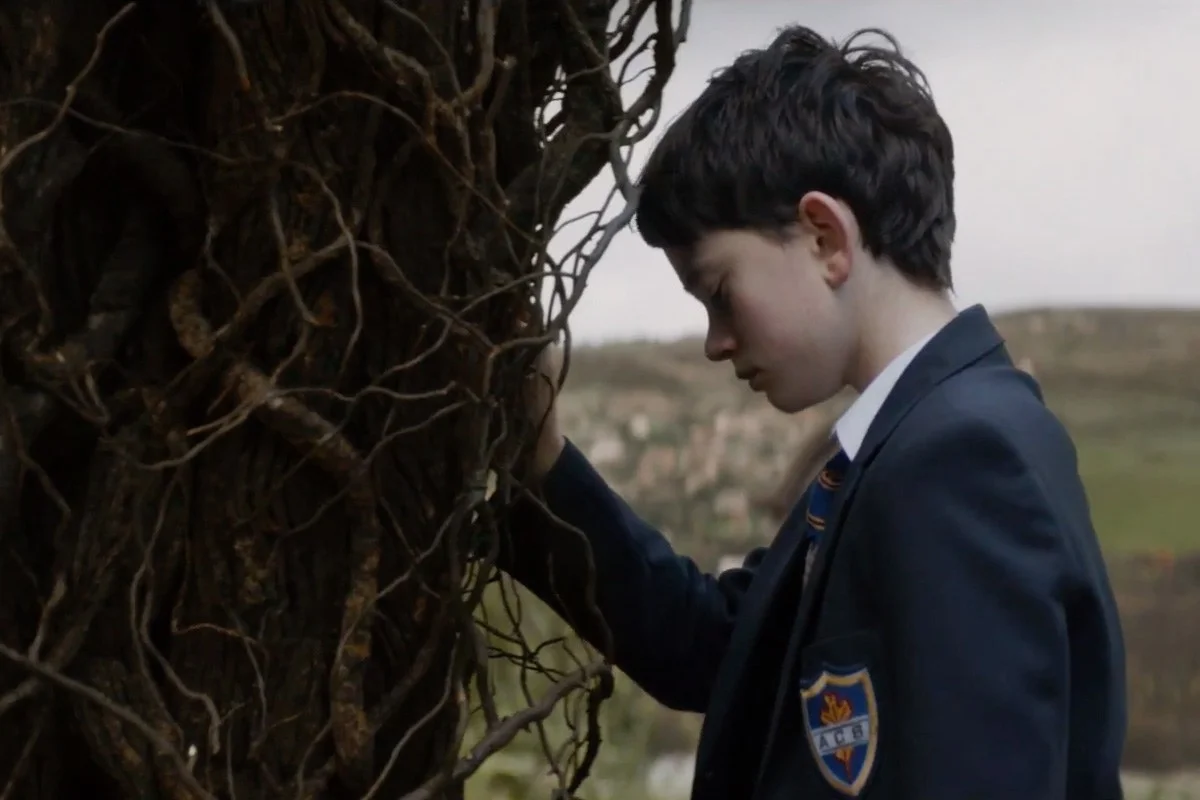A Treatise on Grief: 'A Monster Calls' Film Review
by Will Lindus
Each of us as individuals brings with us a variety of divergent life experiences and viewpoints when we view a film, and it is through the lens of these unique points of view that our feelings about that film are shaped. By this measure, it is fair to state that the experience of viewing a film is in many ways a two-way conversation between the audience and the filmmaker. I preface this review as such because my unique circumstances create a bias that deserves to be lamp shaded, or at least heavily acknowledged, in full transparency.
You see, around the same time that I screened A Monster Calls, a film about an angry young boy who encounters a magical talking tree monster to help guide him through the process of grief, I lost someone incredibly close to me, my former husband, very suddenly. Grief and sorrow and regret and anger and confusion and a thousand unnamed emotions have clung to me like damp clothes after a frigid rainstorm since his passing, and I think because of this, I find myself relating very personally and very positively to the boy in this film as he struggles to come to terms with his own emotions.
The boy, a young man named Conor (Lewis MacDougall), discovers that his mother (Felicity Jones) is dying of an unnamed illness. His father lives abroad, the kids at school pick on him, and his grandmother (Sigourney Weaver) is someone he is unable to relate to. Conor is lonely and unable to process how he is feeling until a tree from the yard springs to live and makes him a promise: the Monster (expertly voiced by Liam Neeson) will tell Conor three fables. After the third story, Conor will then have to tell the Monster a story, with the only stipulation being that the story is the absolute truth.
One of the most remarkable elements of A Monster Calls is its unwavering devotion to allowing complex emotions to be explored without rounding any of the edges for convenience. Unlike many films of its type, especially those aimed at younger audiences, A Monster Calls doesn’t want easy answers or platitudes, and encourages those who are grieving to feel what they are feeling without shame, even if those feelings are messy or incongruent with one another. This feat is accomplished not just through the themes expressed themselves, but also through tone. Conor and the Monster are not purely sympathetic characters; Conor is at times obnoxious, and the Monster is cold and seemingly uncaring. They do not possess a saccharine bond, an important decision when it comes to developing a sincere, mature delivery of message.
On a more technical note, the animation style used during the monster’s three fables helps to tie plot elements together while also displaying dizzying visuals baked with a hint of wonder and a dash of melancholy. These segments feel like fairytales, and not the kind that leave you feeling warm and fuzzy inside. No, these stories have a gothic edge to them both in form and in substance which helps to expand the film’s theme of the acceptance of duality.
This isn’t a perfect film; a subplot with Conor’s father feels forced and unnecessary, while the rest of the supporting cast members (particularly the school bullies and Conor’s mother) are a bit too thinly characterized for a film so focused on complexity. These minor flaws do little to hurt the overall effectiveness of the film, and in many ways allow more time and energy to be spent within Conor’s turmoiled heart.
Bottom Line: As a film reviewer, there is much to love with A Monster Calls, from its art style to its themes and to its willingness to circumvent cliche in a sub-genre that thrives on it. If this were the only lens through which I viewed this film, it would be an easy recommend. However, my own grief - and the ways which this film has helped me come to terms with it - have transformed it into something special. For those who need help processing loss, I cannot praise this film any more highly.
4 out of 5 Bear Paws


